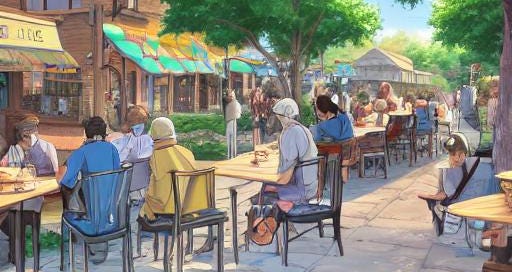Are Philanthropists Seeding Democracy or Weakening It?
If philanthropists put put money into local news, we must ensure that the local news business does in fact reflect and connect to the communities it serves.

In a recently published article, “Inviting in Philanthropy to Strengthen Local News and Democracy” MacArther Foundation President John Palfrey explains that as a nation, we need more journalism from every community in order for democracy to thrive. The absence of local news, he argues, is driving polarization in America.
In reading this article, I reflected on the role that stewardship has on democracy. While aiding communities financially can be beneficial if done properly, it can also reinforce a hierarchical, class-based system. Furthermore, some people may participate in philanthropic work for the wrong reasons such as political gain or to earn public trust. Instead, philanthropy should be a true desire to give voices or means to more people—an inherently democratic ideal. Philanthropic work that is good for democracy must empower the groups being funded to eventually become self-sufficient and must not disrupt the culture or nature of communities, but rather work with them.
Investing in local news and journalism fits that bill. It would give the “fifth of Americans [who] live in news deserts” as well as historically underrepresented groups their proper place in the public arena. However, if we put money into local news, we must ensure that the local news business does in fact reflect and connect to the communities it is meant to serve. As Palfrey elaborates, “we need more journalists, from more diverse backgrounds.” The issue is what comes first: the platform or people?
Palfrey goes on to explain the importance of the media, and especially open media, to our understanding of democracy. Much research has shown just how divisive our nation is now, especially our mainstream, cable news sources. Social contributes, too, as does the absence of fact-checking and the constant availability of new content. While our opinions are formed through many different avenues, it is through media use and interpersonal communication that these opinions are reinforced and strengthened. If more proper news work from each and every community was being published or broadcasted with varying opinions, Americans may not need to turn to TikTok or Instagram. Hostile disputes through major media networks used for publicity rather than to properly inform the people could transform into healthy discourse between neighboring stations who better represent their communities.
In total, we must be careful what philanthropic jargon we fall prey to. In order for a productive democratic society, we must fund our communities and others altruistically and strategically. Philanthropy can mend America’s tattered democracy, and supporting local news is a great start.



